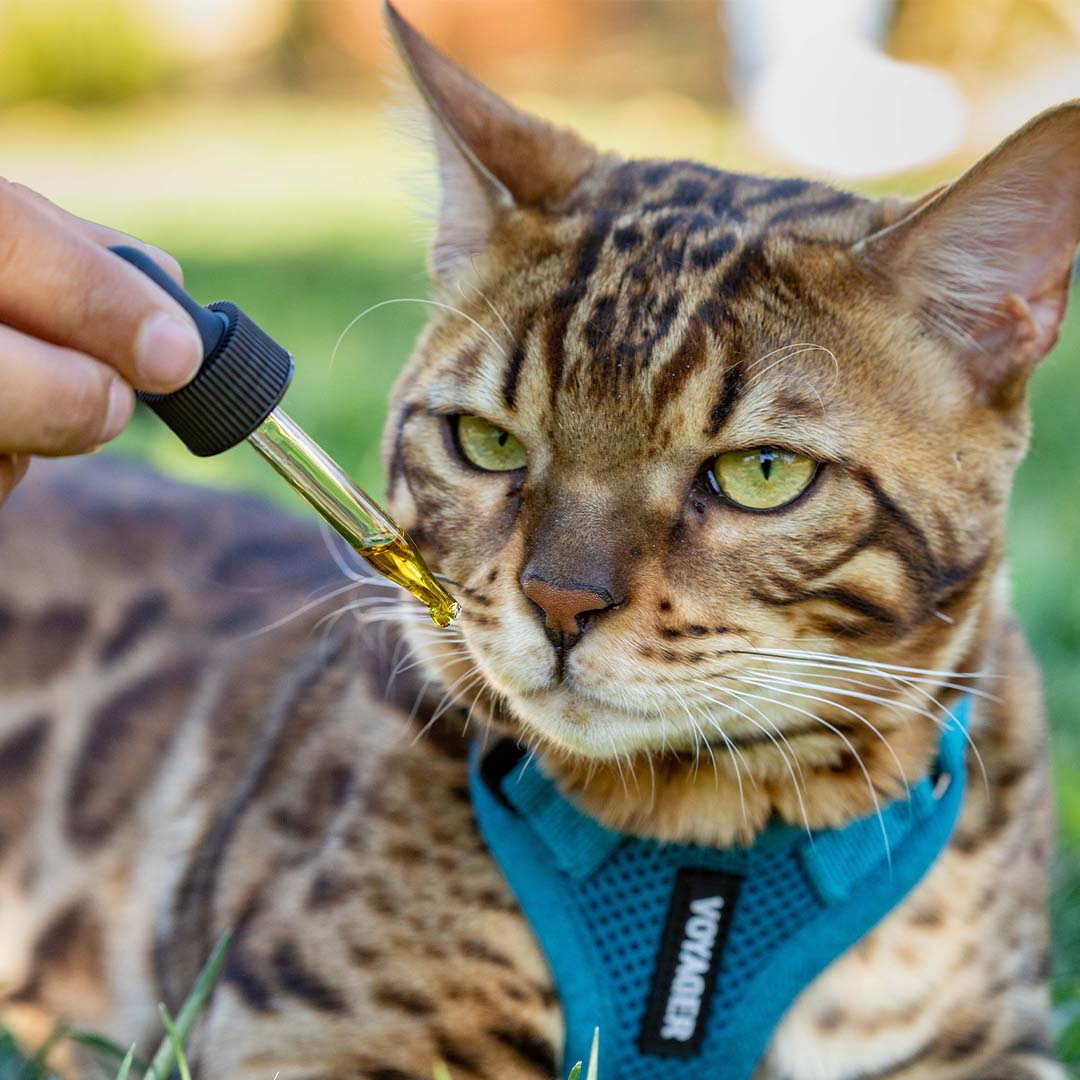Have you ever refused your mother's request to bring a jacket outside and wound up shivering the entire time? Well, you're not alone. Cat shivering is generally common, but it might not always mean your feline friend needs a jacket. You might notice your kitty shivering in various places across its body, such as the head, tail, or entire body. The shaking may occur throughout different parts of the day. Let's take a closer look at why cats shiver and how you can help during these episodes.
Why Do Cats Shiver?
Cats can shiver for various reasons, one of which is indeed temperature. For example, your cat may have low blood sugar and may get cold easily, or your pet could be experiencing a health-related issue. Generally, cat shivering or shaking consists of involuntary movements of the body that alternate from contraction and relaxation, varying in speed. Why is my cat shivering? Shivering can occur gradually or suddenly. A wide range of factors can cause shivering, but is it normal?
Is It Normal if My Cat is Shivering?
If my cat is shaking, there can be a few reasons why this is happening. Cat shivering after bath is normal and it is soaking wet or if the weather is cold outside and its body temperature is lower.
What Causes Cat Shivering?
There are a handful of potential causes for your cat's shivering. If a cat is trembling their body can result from external factors such as the weather, or it can be due to underlying health issues.
Hypoglycemia
Hypoglycemia is a condition in which there is a low blood sugar level, resulting in shaking or tremors in cats. This can occur if your cat goes without eating for a long period, lowering its sugar levels. The best way to combat this condition is to ensure your cat receives the proper amount of sugar needed to have energy for the day.
Low Body Temperature
Another cause for your cat's trembling can be due to low body temperature. The average body temperature of a cat is somewhere between 100.5° Fahrenheit and 102.5° Fahrenheit. As cats get older, they can manage temperatures lower than this range, but kittens must maintain the average body temperature because the results can be life-threatening.
To avoid your cat experiencing low body temperature, have plenty of warm blankets available, keep the temperature in your home at a decent setting, or bundle up your cat in a warm sweater. There are plenty of heated cat beds available that do an incredible job of keeping your kitty warm!

Hyperthermia
Hyperthermia is when a fever or elevated body temperature occurs in cats and can lead to viruses, infections, and sometimes shaking. Any temperature above 102.5° Fahrenheit is in the fever range for cats and can cause shaking or tremors. If you notice any signs of shaking and suspect your cat is experiencing a fever, use a rectal or ear thermometer to check your cat's temperature.
Pain
Sometimes, when your cat is hurt or experiencing pain, it can result in shivering. Usually, cats will hunch up in an uncomfortable position due to the pain they are feeling. If you try to pick them up, they may snap at you because they want to be alone. If the pain persists, it is best to talk to your vet and see what they recommend you do to subside your cat's pain.
Seizures
Seizures are a condition in which there is muscular tension which results in trembling. Seizures can occur due to heatstroke, fever, epilepsy, allergic reactions, and several other reasons. If your cat is prone to getting seizures, check in with your vet to see if they can prescribe you any medication that will keep the episodes under control.
Shock
Cats in shock may experience trembles or shakes, feel cold to the touch, and have an increased heart rate. If your cat is in shock due to an illness or trauma, wrap your cat in a warm blanket and seek medical attention as soon as possible.
Fear
Similar to shock, fear is another intense emotion that can cause your cat to shiver. When a cat is afraid of something, the nervous system responds to the body by issuing a flight-or-fight response which may include trembling or shaking. This is a normal behavior in response to fear, as it is a means of survival. The severity of the fear-induced shaking will vary for every pet.
Deep Sleep
A cat may also shiver during heavy sleep. When cats are in a deep stage of sleep and fully relaxed, you may see your cat twitch. This twitching may only occur for a short amount of time during those several minutes of deep sleep, but it is a normal occurrence nonetheless.

What Can I Do for a Shivering Cat?
Depending on the cause of your cat's shivering, there are a few ways you can help out before bringing your pet to the veterinarian. Sometimes the solution can be as simple as wrapping your cat up in a warm blanket, and other times you need to give your cat a little bit of sugar.
Give Your Cat Some Sugar
If your cat experiences hypoglycemia symptoms due to low blood sugar, provide it with a little honey or maple syrup to balance out its sugar levels (after checking with your vet). Sometimes, if a cat skips a meal or does not eat for a long time, its sugar levels may drastically decrease. A perfect way to increase sugar levels quickly is by giving your feline friend a taste of something with a high sugar level.
Wrap Your Cat In a Blanket
Often, when your cat is shivering, it may just be feeling a little cold and need some warmth. Maybe it spent a little bit too much time outside, or the temperature in the house is a bit too cold. Either way, wrapping your cat in a blanket can warm it up and may stop its shivering.
Remove the Thing Causing Fear
One reason why a cat may be shivering is due to fear. Whether your cat is scared of loud noises, in a new environment, or surrounded by strangers, a fearful cat can lead to shivering or shaking. The best way to solve this issue is to remove the thing causing the fear if possible. If you cannot remove the thing making your cat scared, providing a safe space for your cat to feel comfortable is the next best thing.
Can I Give My Cat CBD if It's Shivering?
Absolutely! Providing your cat with cannabidiol (CBD) can be a great way to calm it down during those moments of feeling jittery or stressed out. CBD provides many benefits, such as improving mood, boosting appetite, and relaxing the body. CBD is a compound of the hemp plant that can provide many benefits.
Products such as CBD oil and CBD cat treats can bring your cat a sense of peace by relaxing its body and reducing shivering. At HolistaPet, all our CBD products are created with 100% natural ingredients, federally legal amounts of THC (0.3% or less), and no synthetic additives or preservatives.
When to Go to the Vet for Cat Shivering
If you've tried our tips and your cat's shivering continues for multiple days, contact your veterinarian. Your vet can determine the best treatment method, confirming where the issue lies. Your vet may prescribe medication to reduce your cat's hyperthermia and help bring its fever to a normal body temperature.
Final Thoughts - Cat Shivering
Finding that your cat is shivering can be alarming at first, but remember that this is normal behavior that happens occasionally. In these situations, the best thing to do is to determine the root cause of the shivering and see if there is anything you can do to help your cat feel safe during its episode. Providing your cat with a bit of comfort and maybe a few CBD cat treats might be just what it needs to stop shaking!








![Probiotics For Dogs [Soft Chews]](http://www.holistapet.com/cdn/shop/files/Probiotic-Infographic-1_472d7a29-e30c-435a-9638-1365d8c3a9f9.jpg?v=1725384841&width=104)















![Cat Shivering [How to Spot It & Ways You Can Help!]](http://www.holistapet.com/cdn/shop/articles/20._Cat_Shivering_How_to_Spot_It_Ways_You_Can_Help.jpg?v=1718133632&width=1500)















Leave a comment
This site is protected by hCaptcha and the hCaptcha Privacy Policy and Terms of Service apply.